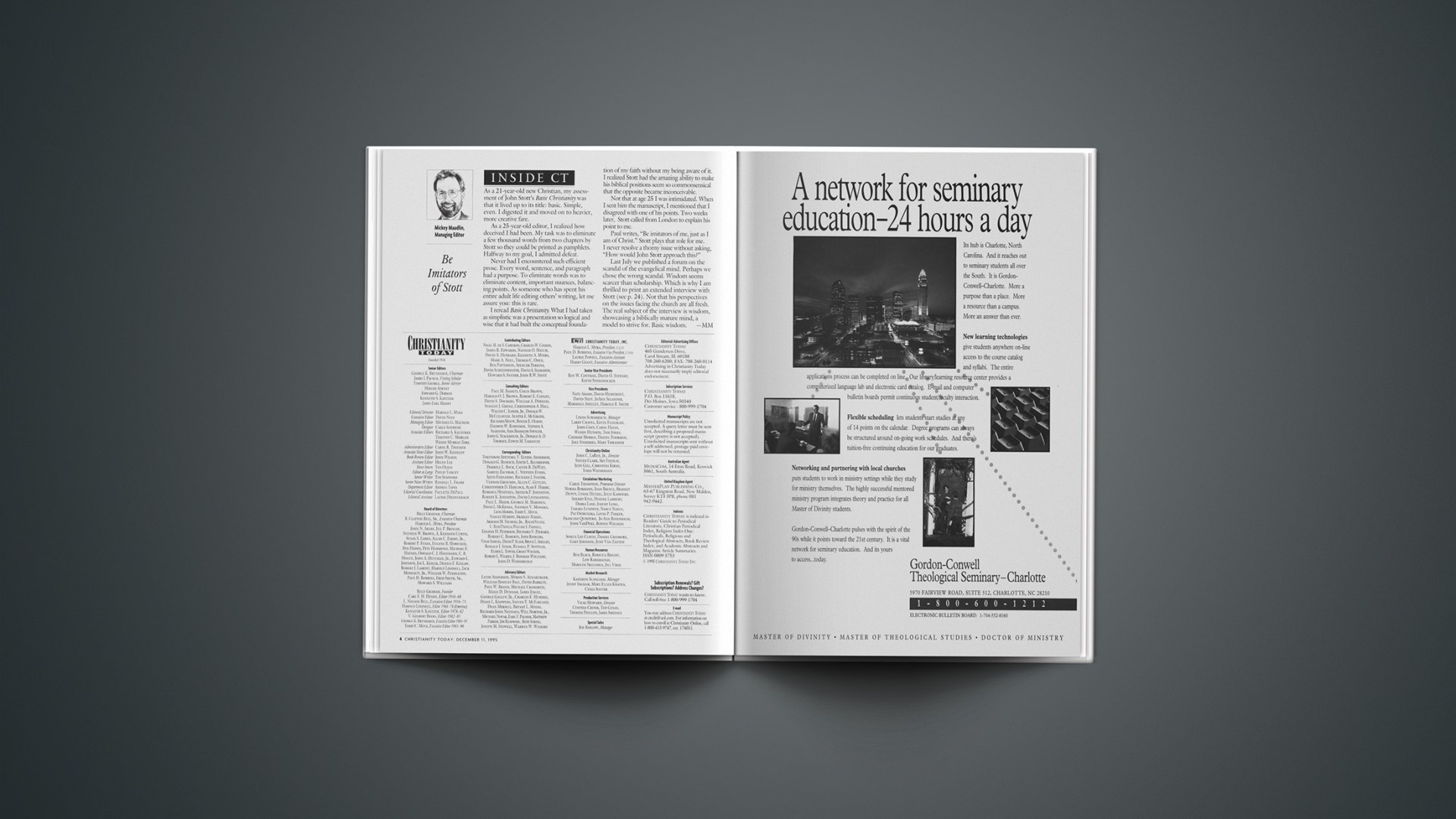As a 21-year-old new Christian, my assessment of John Stott's "Basic Christianity" was that it lived up to its title: basic. Simple, even. I digested it and moved on to heavier, more creative fare.
As a 25-year-old editor, I realized how deceived I had been. My task was to eliminate a few thousand words from two chapters by Stott so they could be printed as pamphlets. Halfway to my goal, I admitted defeat.
Never had I encountered such efficient prose. Every word, sentence, and paragraph had a purpose. To eliminate words was to eliminate content, important nuances, balancing points. As someone who has spent his entire adult life editing others' writing, let me assure you: this is rare.
I reread "Basic Christianity." What I had taken as simplistic was a presentation so logical and wise that it had built the conceptual foundation of my faith without my being aware of it. I realized Stott had the amazing ability to make his biblical positions seem so commonsensical that the opposite became inconceivable.
Not that at age 25 I was intimidated. When I sent him the manuscript, I mentioned that I disagreed with one of his points. Two weeks later, Stott called from London to explain his point to me.
Paul writes, "Be imitators of me, just as I am of Christ." Stott plays that role for me.
I never resolve a thorny issue without asking, "How would John Stott approach this?"
Last July we published a forum on the scandal of the evangelical mind. Perhaps we chose the wrong scandal. Wisdom seems scarcer than scholarship. Which is why I am thrilled to print an extended interview with Stott (in this issue). Not that his perspectives on the issues facing the church are all fresh. The real subject of the interview is wisdom, showcasing a biblically mature mind, a model to strive for. Basic wisdom.
Copyright © 1996 Christianity Today. Click for reprint information.










